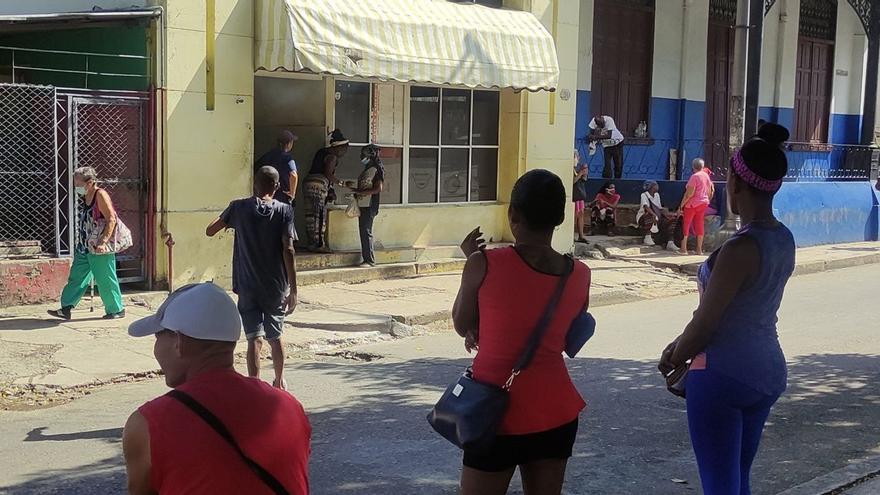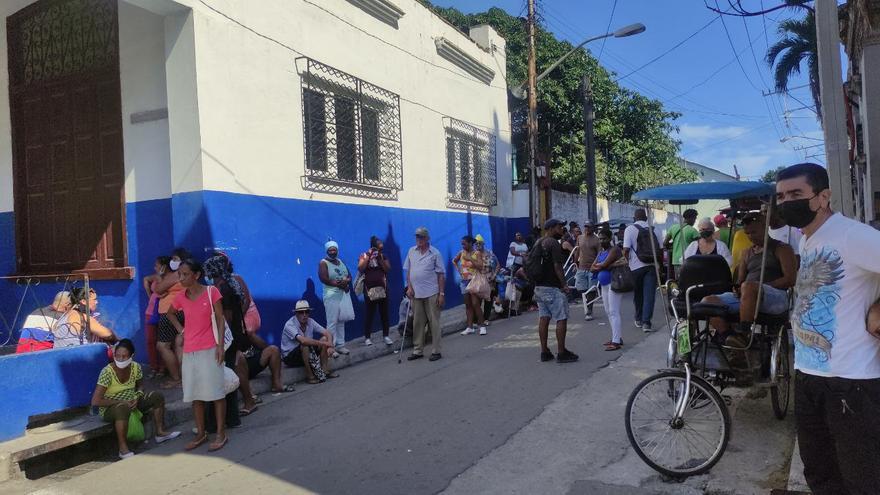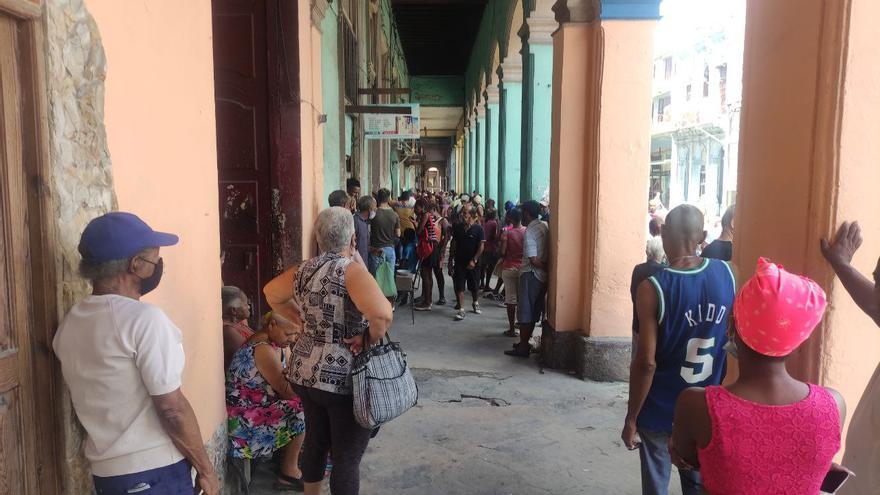
![]() 14ymedio, Juan Diego Rodríguez and Juan Izquierdo, Havana, 24 August 2022 — From the balcony, Yudineya watched dozens of bread and cookie sellers pass by every day in her neighborhood of Los Sitios in Havana, but for weeks they have practically disappeared. The shortage of wheat flour has hit private bakeries hard and has also put state bakeries in check.
14ymedio, Juan Diego Rodríguez and Juan Izquierdo, Havana, 24 August 2022 — From the balcony, Yudineya watched dozens of bread and cookie sellers pass by every day in her neighborhood of Los Sitios in Havana, but for weeks they have practically disappeared. The shortage of wheat flour has hit private bakeries hard and has also put state bakeries in check.
For decades, “bread with something” has been the fundamental comfort food in Cuban homes. From the elaborate bite of ham and cheese to the poorest bread with oil and salt, the snacks of students and workers depend to a great extent on that baked product that has been disappearing in recent weeks.
“I don’t know what we’re going to do when our child starts school,” says Yudineya, 38, whose son will start the second grade of elementary school in September. “What my son always takes for a snack is bread with whatever appears, but now not even that is available,” she explains to 14ymedio.
In Nuevo Vedado, a colorful private bakery that until recently offered bags of the so-called “ball bread” in addition to hard-crust French bread, baguettes and rolls, now offers only roasted peanuts and egg-white merengue. “We’re not offering bread because we don’t have any flour,” the employee explains. “Sales have fallen a lot, and if we continue like this we’ll have to close.”

But it’s not only bakeries that are feeling the blow of the shortage of wheat flour. Businesses that base their gastronomic offerings on pizzas and sandwiches are also suffering. “We were selling bags with 10 pizza crusts for 300 pesos, and now we’ve had to raise the price to 500,” says the delivery man of La Paloma, a private business in Diez de Octubre.
In front of the bakery on Carlos III, one of the few that still sells “released” [unrationed] bread, the elderly, physically disabled, kids, mothers and all kinds of people begin to show up. Neither age nor the numerous ailments exempt the Cuban, who must defend his place in line as if he were in a besieged fortress.
An employee announces that they will soon sell a few breadsticks. What in Creole gastronomy used to be long and crunchy, in socialism assumes the dictionary definition: “small stick, crude and poorly made.”
Invoking strength that they don’t have, battered Cubans, hoping to get a breadstick, stampede to take their place in line. One woman complains, “All we can get is a little piece of breadstick per person.”
Once the “sticks” have been bought and packaged, the crowd recovers its place in the shade. They must keep waiting: in an hour, they think, the bakery will take out a small amount of garlic bread.
“It will get worse,” predicts a bakery employee. “As of September 1, only the popular council can buy bread here. We’ve been told that there must be an establishment in every place that takes care of the people in that area.”
The shortage of flour occupies the gossips, as do the newspaper articles, the panic of daily hunger and the comments about the imminent school year. It scares mothers and overwhelms retirees, accustomed to a Spartan ration of bread and water with sugar.
An audio circulated on social networks, attributed to a Commerce manager, whispers to anyone who wants to listen that there will be no more flour. “Neither for hospitals nor for the army,” says the anonymous voice. Some sacks of flour will be available for standard bread and some for prisons, whose tranquility cannot be risked.
A prison riot, in a country where a protest can break out every night, has become one of the favorite topics to discuss during the blackouts and domino games.

“Today for breakfast I had only a hard roll that I brought from Havana several days ago,” Kenny Fernández Delgado, one of the Havana priests who bothers State Security the most, wrote on his social networks.
Fernández lambasted “communism,” which “took away my beef before I was born, and my milk at the age of 7” and now even “the ‘released’ bread has become a prisoner… Take everything away from me and that’s it,” the priest concluded, “as they did to Jesus Christ on Good Friday, because that way I will know that Easter Sunday is closer.”
The Government, as usual, used the State newspaper Granma to “rewrite” the alarming reality on the Island. “There are no problems with the production and distribution of bread from the Regulated Family Basket and the Cuban Bread Chain,” the media said, citing a note from the Ministry of Internal Trade.
He admitted, however, the “difficulties in the import of wheat,” attributed to the embargo, Cuba’s “financial constraints” and the “international logistics crisis.” The report concluded by “calming down” the vulnerable sectors of the population, apparently saved from scarcity.
Meanwhile, the official reporter Lázaro Manuel Alonso was trying to reconcile the fiction with reality: “Señores, stop the interpretations now,” he demanded on Facebook, supporting Granma’s version.
However, he admitted in the same publication, “Yes, there have been difficulties with the processing of bread due to the lack of electricity, which has nothing to do with the supply of raw materials for production.” Regardless of the contradictions within his own message, he tried to settle as “false” the rumor of scarcity that “some users have shared on social networks.”
The “white dust crisis,” as some Cubans have begun to call it, keeps private producers in suspense. Pastry shops have substantially reduced their supply, while the price for any empanada, jam or cake, no matter how squalid, is increasing.
Not only flour, but also eggs, sugar, oil and other ingredients of the family pantry will be removed from the symbolic Cuban’s table. The meats, the fruits and now, finally, the bread basket are also gone.
Translated by Regina Anavy
____________
COLLABORATE WITH OUR WORK: The 14ymedio team is committed to practicing serious journalism that reflects Cuba’s reality in all its depth. Thank you for joining us on this long journey. We invite you to continue supporting us by becoming a member of 14ymedio now. Together we can continue transforming journalism in Cuba.
